The French Lieutenant's Woman (1981)
'She was a dreamer. She was the girl who did not belong...'
Let’s do The French Lieutenant’s Woman— the second film in our Jeremy Irons weekend. Whatever happened to John Fowles? Look, I realise his literary reputation is most probably assured— at least amongst academics and students of English literature— but his mass-market popularity seems to have vanished. This may have to do with the two-volume journals (2004/2007) and their controversial and possibly unsavoury opinions. The Collector (1963), The Magus (1965), The French Lieutenant’s Woman (1969) and Daniel Martin (1977)— these were cult books in the ‘60s, 70s and early 80s (for intense, early twenty-something girls with Lizzie Siddal fantasies, especially)— and today, I find those paperback covers strangely haunting: browned and splattered with sun-lotion, read by my parents on the beach in Cornwall and the South of France. Several Fowles books have made it to the Silver Screen: The Collector (1965), starring Terence Stamp and Samantha Eggar; The Magus (1968), starring Michael Caine, of which on being asked: "What would you change if you had your life to live over again?" Peter Sellers said, "I would do everything exactly the same, except I wouldn't see The Magus"— and The Ebony Tower (1984), adapted by Granada into a rather wonderful film for television, starring Laurence Olivier, Roger Rees and She-Who-Can-Do-No-Wrong, Greta Scacchi.
Mind you, brilliant and readable as he is, Mr. Fowles was a grumpy old sod. I once queued up at Hatchards in the hope that he might sign A Maggot (1985) in first edition. The woman in front (lunch at Fortnum’s and the 4.45 to Tunbridge Wells) asked him to inscribe her copy ‘John Fowles, Lyme Regis…’, a rather cheeky (even impertinent) request considering we were standing in the middle of a shop foyer in Piccadilly. And who can blame his caustic response?
I returned to The French Lieutenant’s Woman, or at least the film version, in the same vein— was it as I remembered? Back in 1981, the film was huge. A big deal. Talk of the town. It’s directed by Karel Reisz, whose previous films include Isadora (1968), starring Vanessa Redgrave, who gets strangled by a scarf. The script is by Harold Pinter. And it’s clever. Tricky one to adapt, The French Lieutenant’s Woman. As you remember, the book’s kinda experimental, written from the point of view of the novelist, and there are three alternative endings. So Pinter creates a film within a film (reducing the alternative endings to two), a device used in Truffaut’s Day for Night (1973)— sort of. Mike (Jeremy Irons) and Anna (Meryl Streep) (the actors) are in a parallel love story, in an affair on set, and Mike’s clearly infatuated with the increasingly remote and disinterested, Anna.
Anna’s a glamorous American— probably an international film star, married to a suave Frenchman; Mike’s the neurotic English thespian (probably RSC) with a long-suffering wife, played by the excellent and sympathetic Penelope Wilton. And there’s a sweet daughter in a Laura Ashley dress. Which sort of accentuates the hopelessness- and selfishness- of Mike’s doomed affair. Streep’s English accent is not quite right, a trifle over-mannered, as if attending a finger-crooking tea party (as American actors tend to do when playing English parts), but hey! as they say, Worse Troubles at Sea. Set in 1867, Sarah Woodruff (aka ‘Tragedy’) is a mysterious, melancholic ex-governess (read Pre-Raphaelite Goddess), cruelly jilted by a French naval officer, who spends days on end standing at the end of the Cob in Lyme Regis staring out to sea— like a Thomas Hardy heroine. Which is kinda sexy, or, at least, a turn-on for Charles, the gentleman paleontologist and Baronet’s grandson. But then he’s engaged to the ambitious, social-climbing, fashionable Ernestina— archery on the lawn and the latest Bond Street frock.
For those of us who care about this sort of thing, The French Lieutenant’s Woman has a terrific Pre-Raphaelite sensibility, like a Millais, a Ford Madox Brown or an ivy-clad photograph by Julia Margaret Cameron. Which is apt, as in the book Sarah ends up at the house of Gabriel Dante Rossetti, on the Thames, at 16 Cheyne Walk, Chelsea. And there’s a superb score by Carl Davis, a sort of romantic mid-Victorian pastiche, a bit like Mendelssohn or Smetana— which I would urge you to listen to on Spotify. (The French Lieutenant’s Woman Suite.) This is an aesthete’s film, beautifully photographed by Freddie Francis, also responsible for The Elephant Man (1980), which we covered in a previous post.
The liaison at the church (set to Bach’s Toccata & Fugue) reminds me enormously of Arthur Hughes’ Back from the Sea (1857)— either intentionally or unintentionally. There’s a terrific sense of the Victorian, helped by Ann Mollo’s set decoration. But then period drama reached its apogee in the early to mid-80s, a fine art now lost on the set designers of today, with their need, just like the X-factor, to make things ‘current’. And there’s a lovely supporting cast, with Leo McKern as a confirmed Darwinian, Lynsey Baxter as Ernestina, the lost little rich girl and Patience Collier as the ghastly Cromwellian, Mrs Poulteney. Above all, Sarah Woodruff remains an enigma— feminist Pre-Raphaelite heroine or manipulative, unbalanced trouble, with a capital T? Or, perhaps, a bit of both? A woman who is prepared to ruin Charles’ engagement, so that she can discover her ‘true identity’.
So there you go. The French Lieutenant’s Woman (1981)— another gem of early 80s British cinema: available via DVD, Blu-Ray or Amazon Prime Video digital download. I’ve run out of space, but I hope, at least, that this post might inspire you to revisit The French Lieutenant’s Woman with fresh eyes.
You've just been reading a newsletter for both free and 'paid-for' subscribers. I hope you enjoyed it. Thank you to all those of you who have signed up. Really appreciated. To view the other films we’ve covered so far, please go to the Luke Honey WEEKEND FLICKS. archive. ‘Paid for’ subscribers get two weekend film recommendations, access to the entire archive and the ability to comment. By the end of the year, there should be over 100 film recommendations.
I will be back next Friday. In the meantime, I hope you have a relaxing and cinematic Sunday. So why not settle down with a cocktail and a film this evening? I can’t think of anything more civilised…


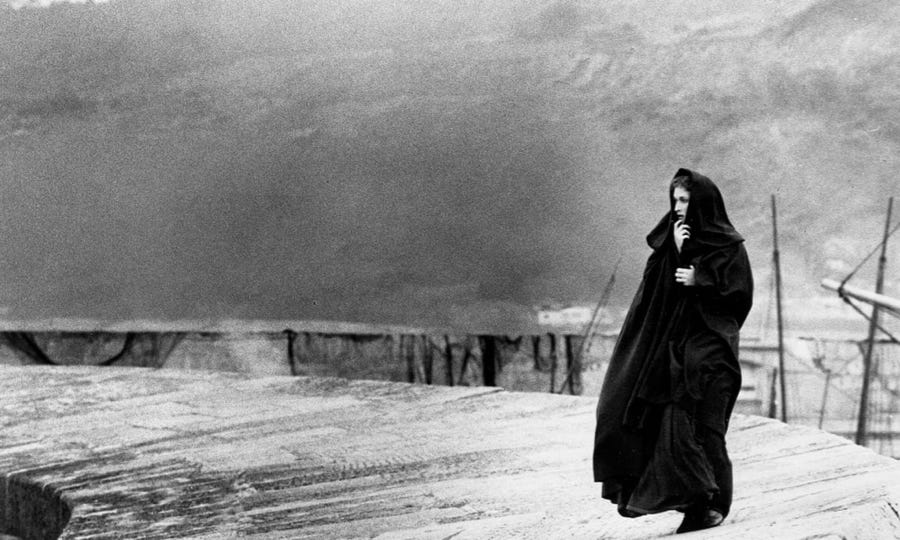
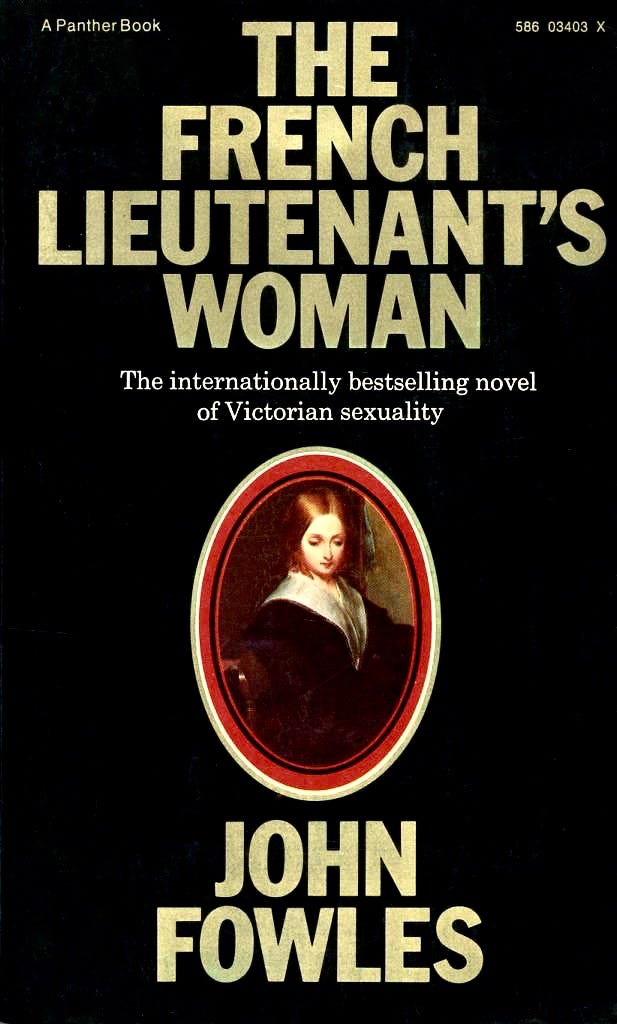
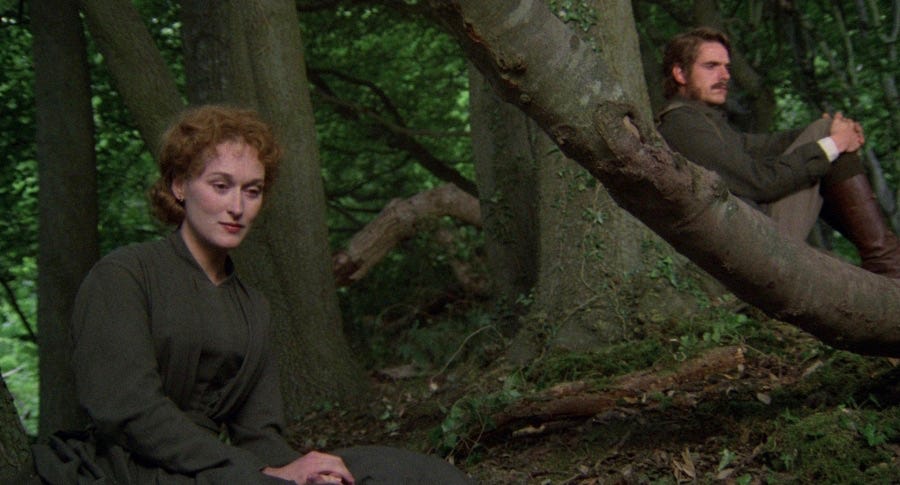
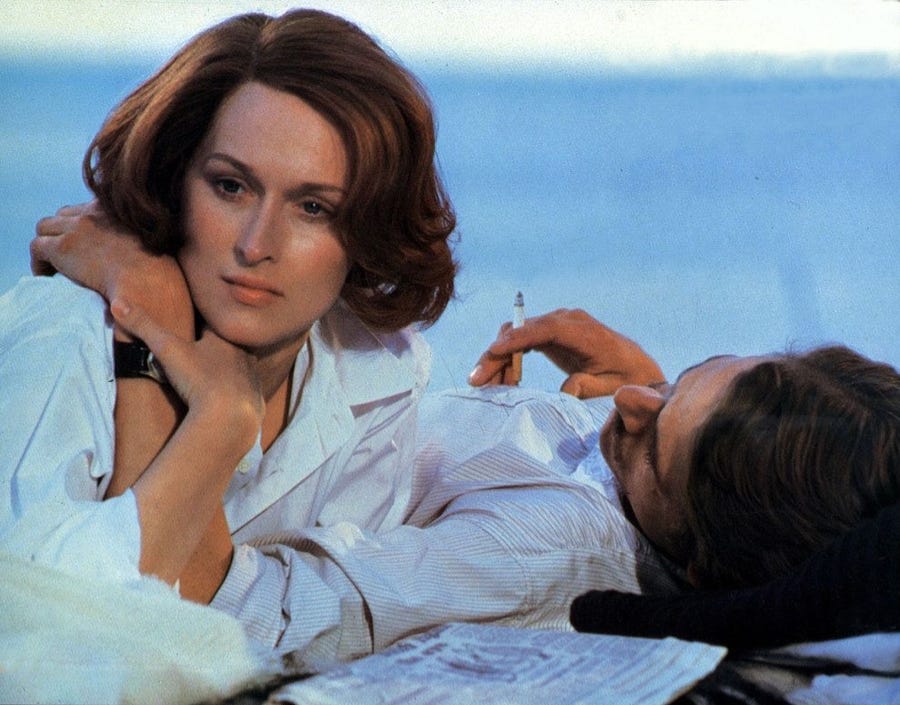
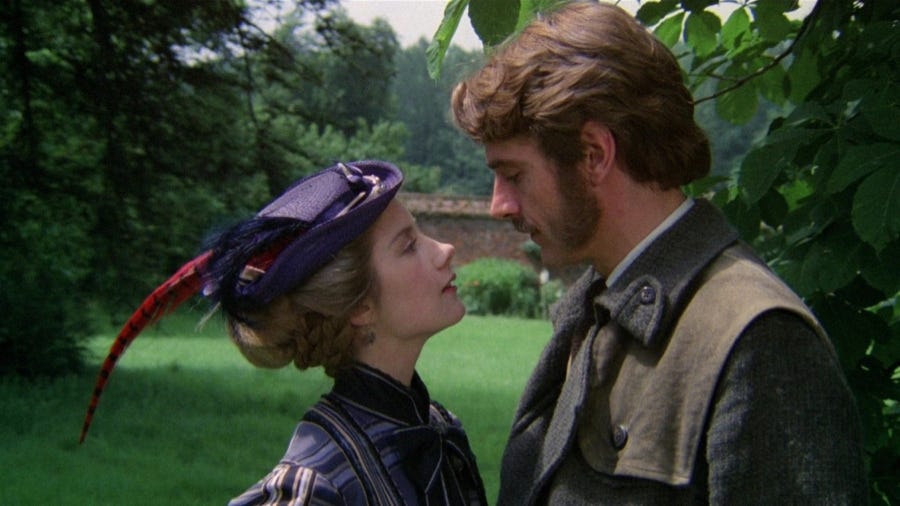
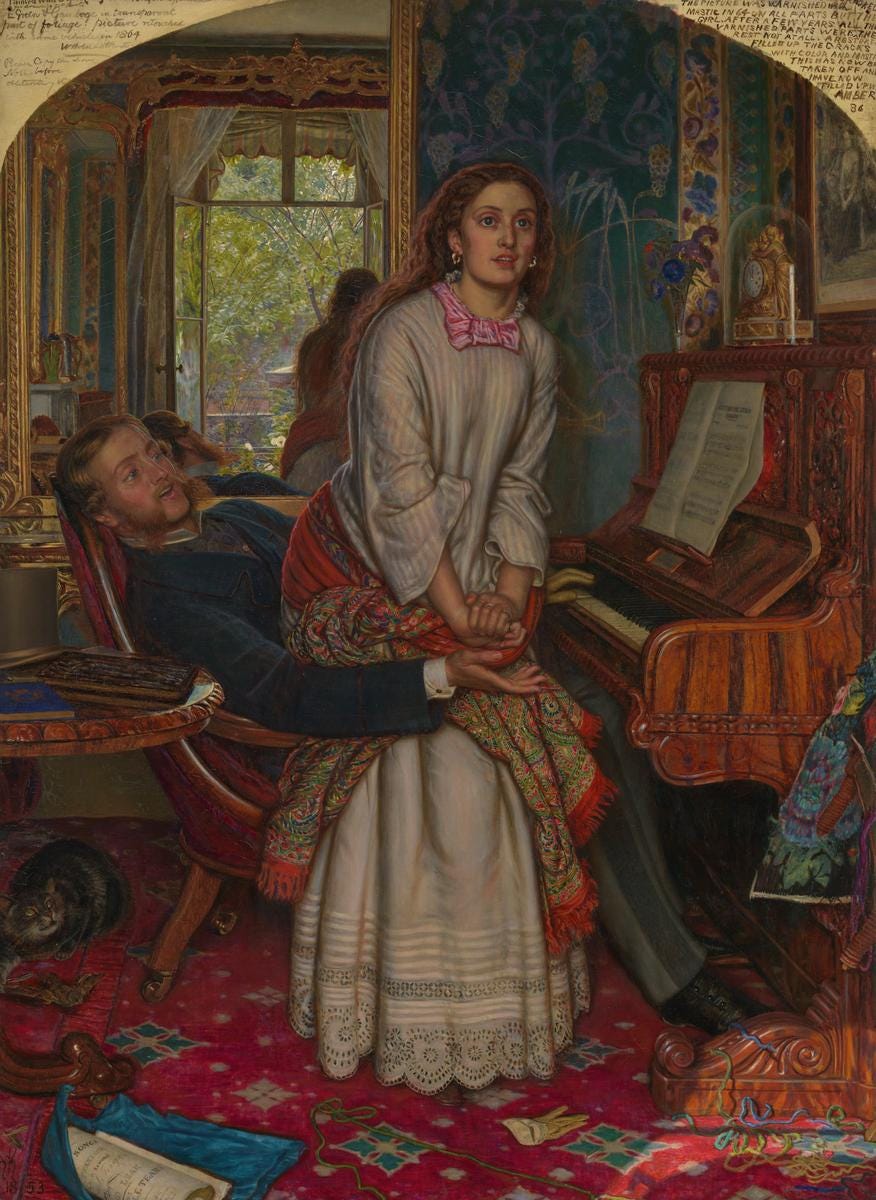
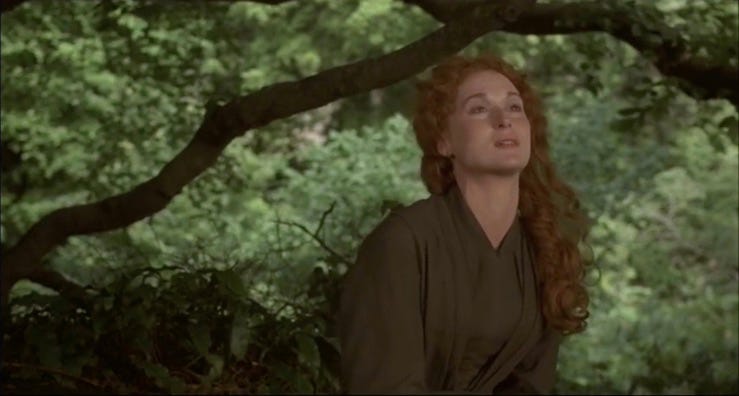
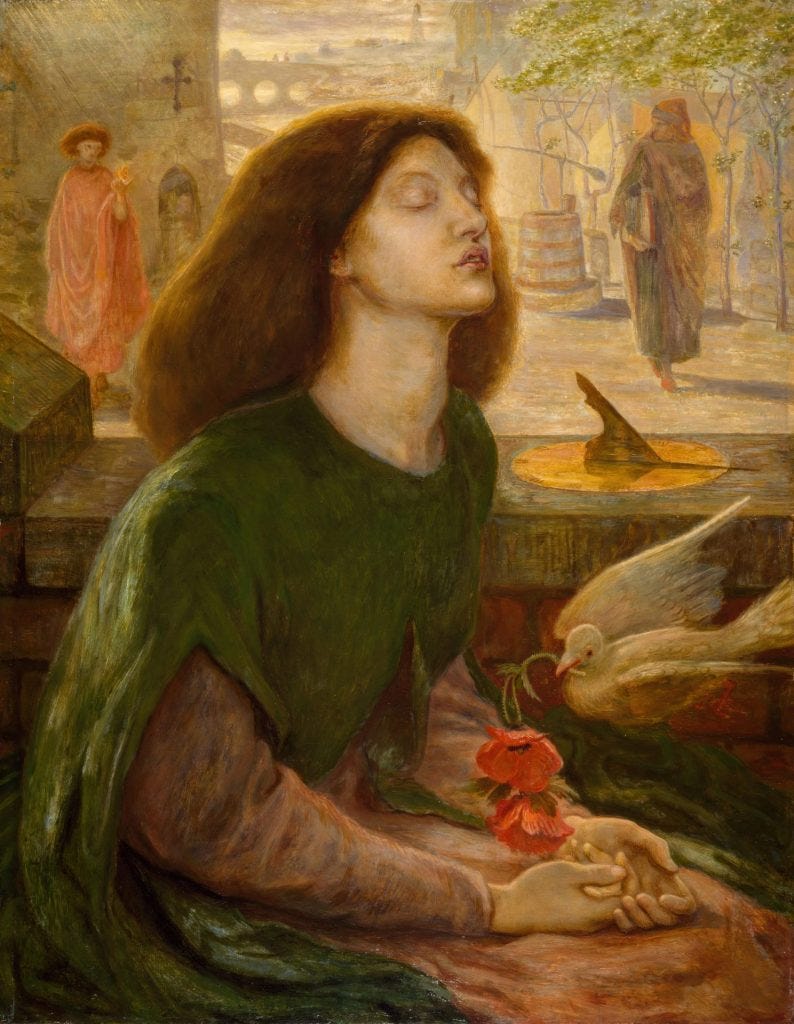
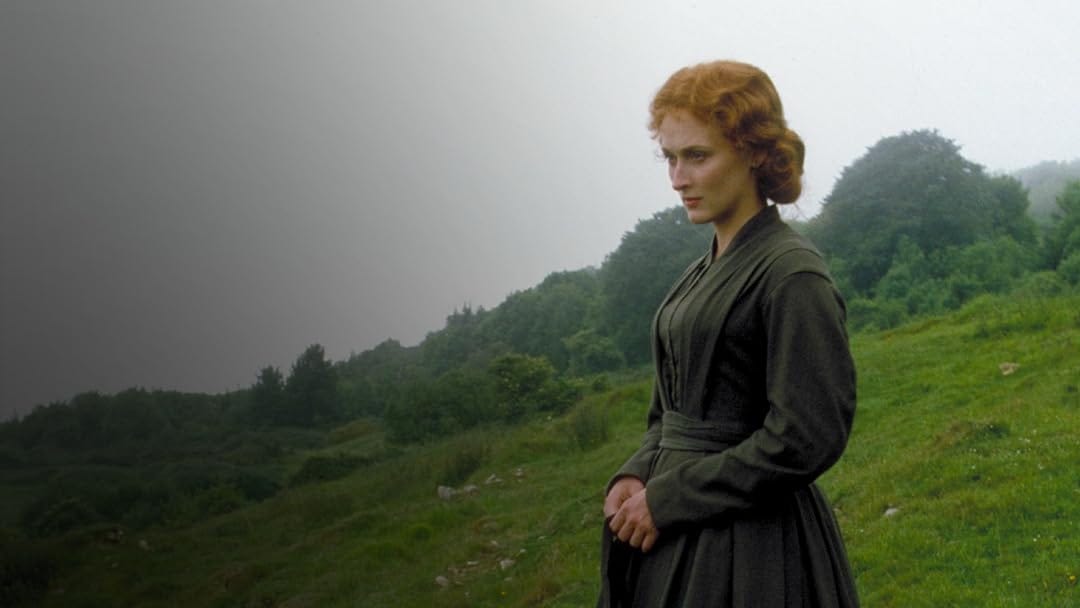

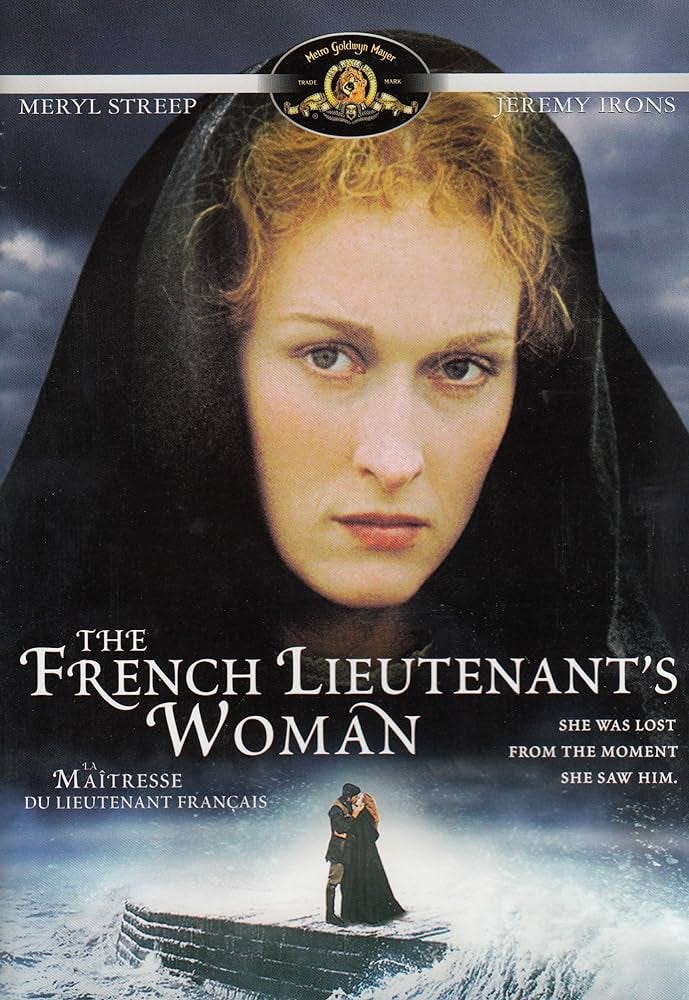
Watched it over the weekend for the first time since it was in the cinema and was completely absorbed from start to finish. Then I read a bunch of reviews, and was surprised to find so many of them lukewarm and generally ‘meh’ - very much as many critics tend be about the Fowles novels. So I’m glad you’re a fan. I see you’ve also covered ‘Moonlighting’, of which I was also a huge fan when I first saw it - on TV I think - so that will be next on my list.